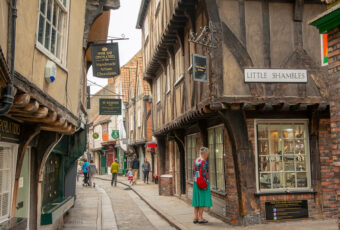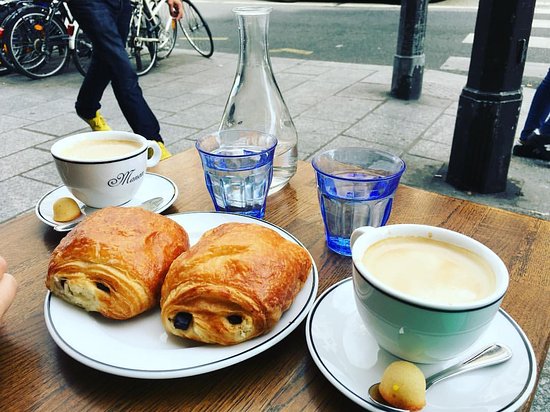
Breakfast
Breakfast
Most French people begin the day with a coffee and a pastry like a pain au chocolat or croissant. Usually, the pastry is paired with a café au lait. Although Starbucks and other chains are becoming more popular in France, most cafes will still have basic offerings like coffee beans, regular milk, and sugar.
Lunch
Lunches are a much more extravagant affair in France than in the United States. Lunch can last about two hours, even if it a light lunch. It’s not uncommon for people to take 45 minutes to eat a baguette sandwich.
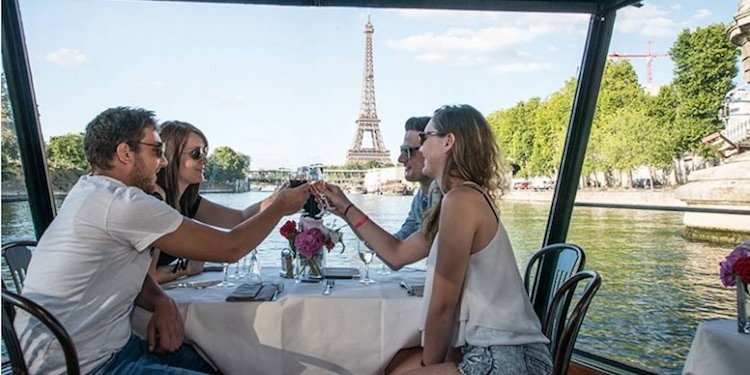
Lunch
The reason is that lunch is a very social affair, and many people don’t see why it should be rushed. The French mentality goes something like “you should work to live, not live to work.” That’s why the work day usually ends at around 7pm in France.
Dinner
Dinner is also not a simple affair, and usually consists of at least two courses and often more. Even though meals seem like they’re large, it’s partially because snacking is not really part of the culture in France. Sometimes kids will have snacks but most adults skip snacks and have three full meals.
You’ll typically find bread served with dinner in order to dip sauces and cleaning the plate. For dessert, while the French are known for their incredible pastries, usually a cheese platter is the common go-to dessert.
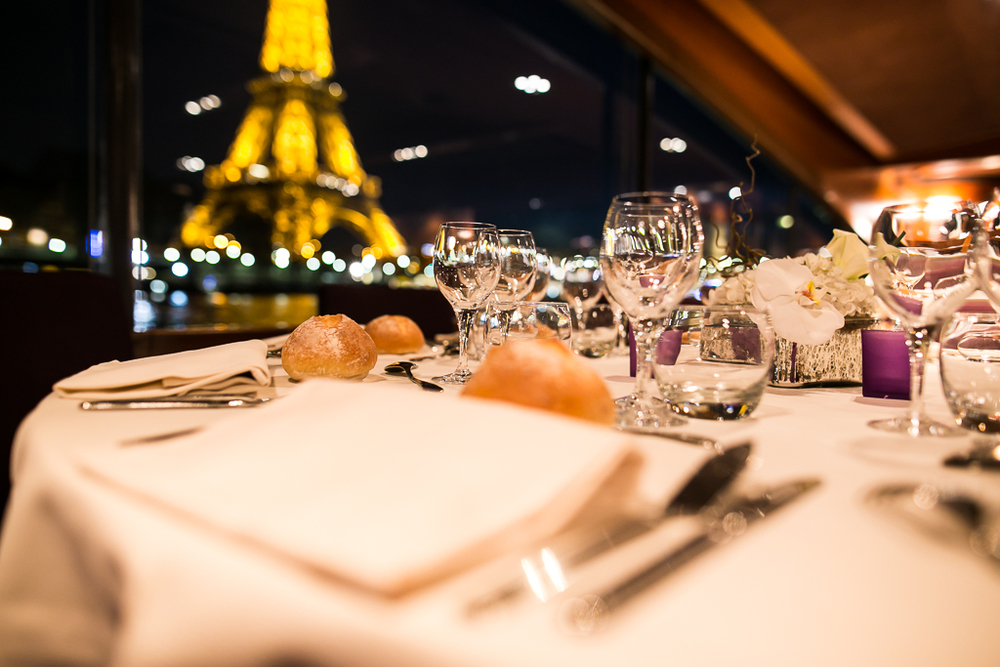
Dinner
Tipping & The Bill
Contrary to how the restaurant industry works in the United States, in France, restaurant staff receive a full wage and do not expect tips. If the service is exceptional, you can absolutely leave a tip. For example, if your bill comes out to 37 euros, you can leave 40 euros. However, tipping is not expected at all.
Waiters will never try to rush you out for your table, so in order to get the bill, you’ll have to ask for it. To get the bill, you’ll ask “l’addition s’il vous plaît” and usually you’ll be given a card machine in order to process the bill. If you don’t have a chip in your card, you might want to keep cash on hand in order to avoid any payment issues.
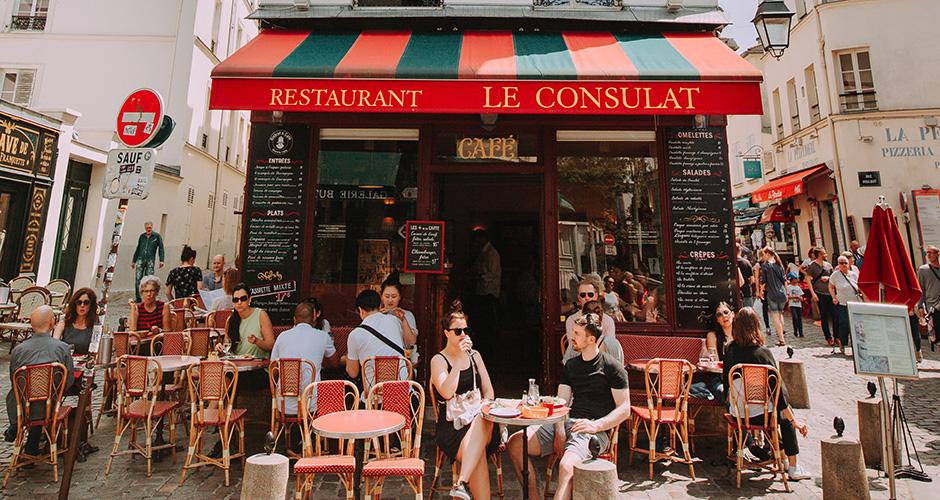
Tipping & The Bill
Meat Preparation
You should be aware that meat preparation is quite different in France than it is in the United States. What we might call rare would be considered medium rare in France, as French preparation keeps meat pretty rare and bloody.
Here’s a useful guide for ordering meat in French: bleu means almost uncooked, saignante is rare, a point is medium rare (what most Americans are probably looking for) and bien cuit means medium well. Well done is pretty much not an option in most restaurants in France.
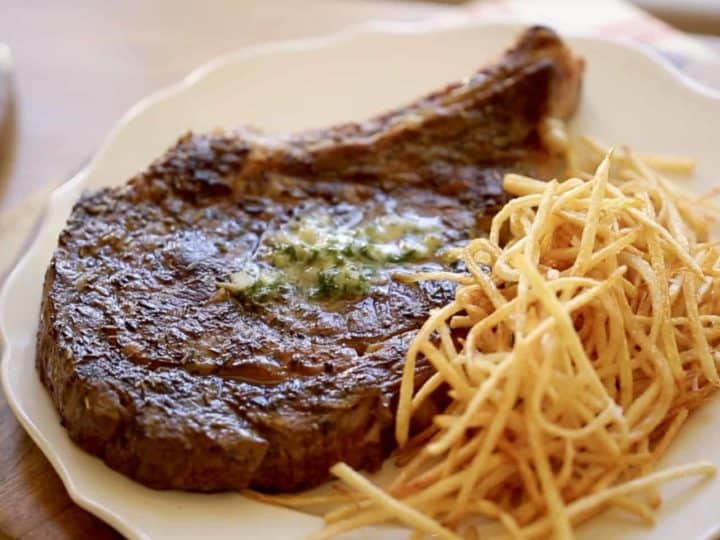
Meat Preparation
Essential French Dishes
Steak Frites – just as it sounds, this meal consists of steak and fries which will often come with a delicious sauce
Croque Monsieur – a grilled cheese sandwich that will often include ham and gruyère cheese. Add an egg, and you’ve got a Croque Madame.
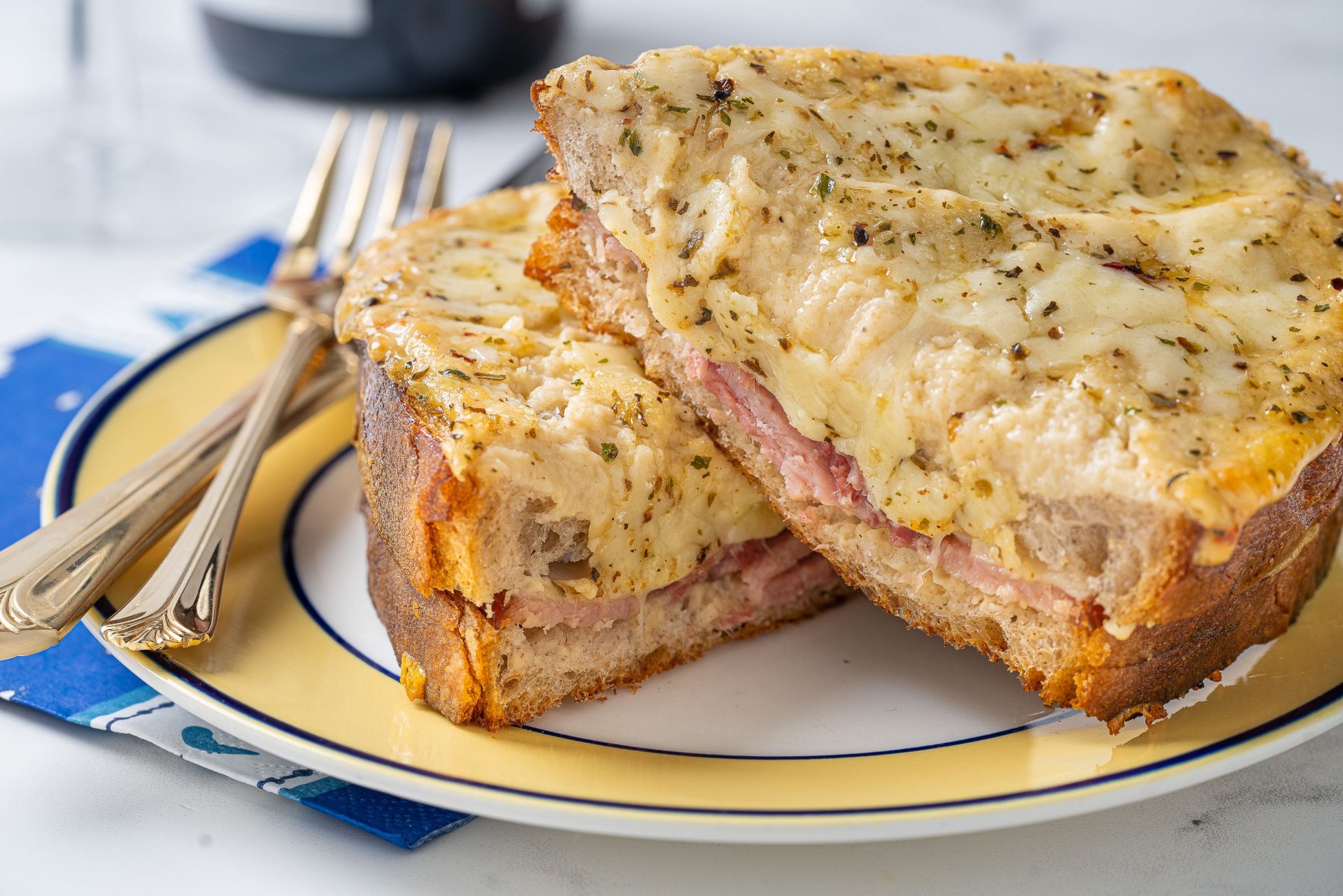
Croque Monsieur
Steak tartare – although it might be surprising to many Americans, but fresh and raw meat is very common around France. Properly prepared, it is generally considered to be safe for consumption
Quiche Lorraine – This is a delicious savory tart with eggs, cream, cheese, and often bacon
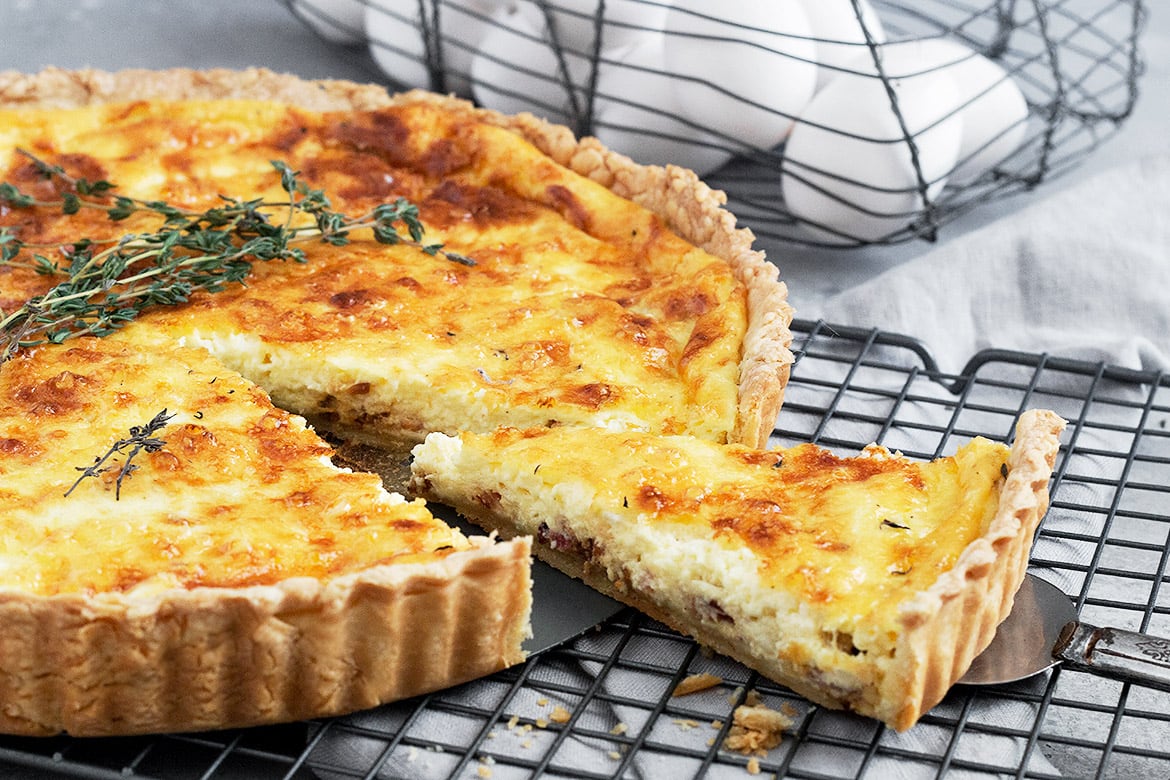
Quiche Lorraine







